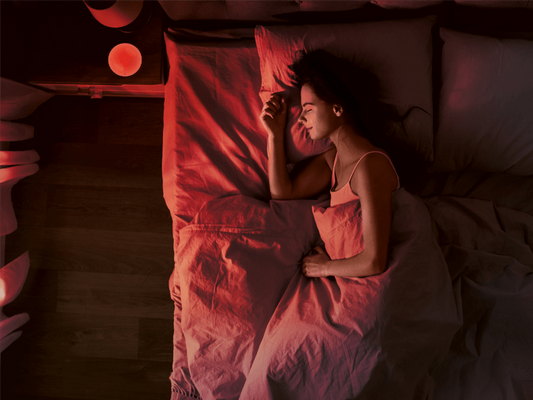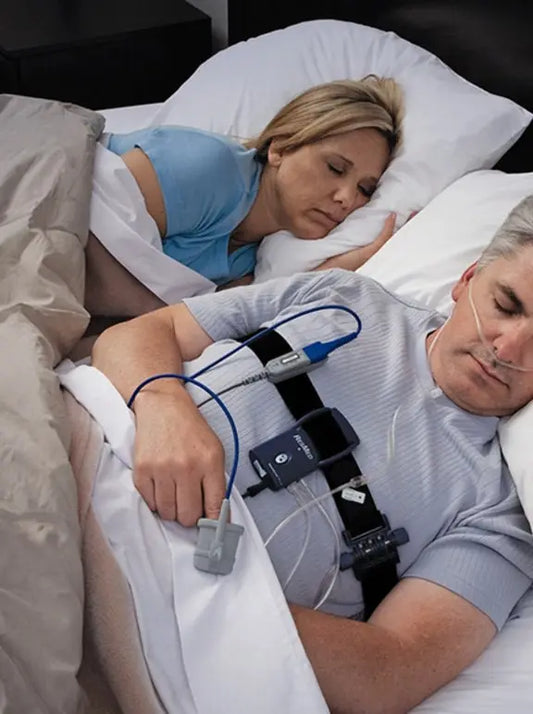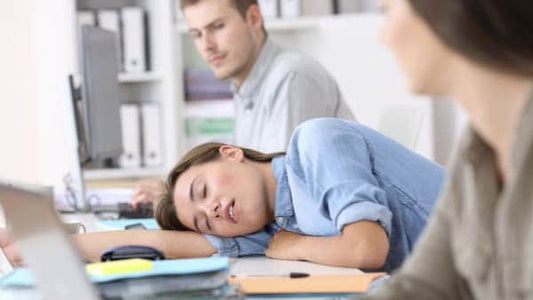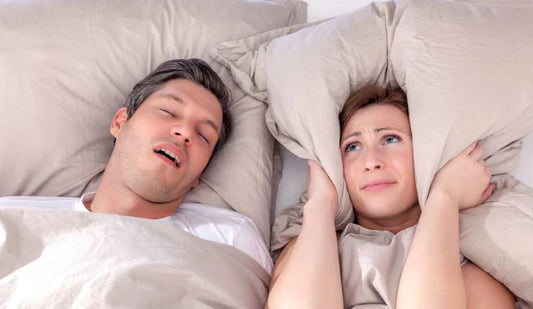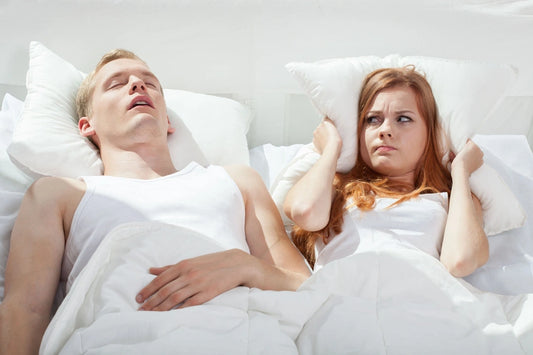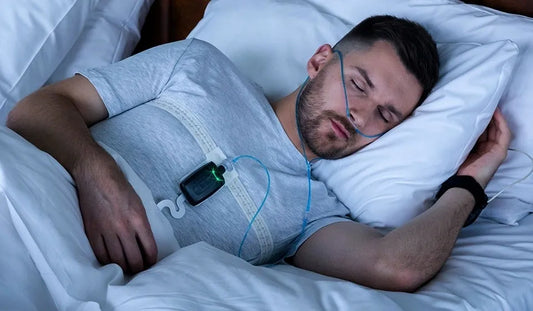Have you noticed excessive daytime sleepiness, marked snoring, daytime sleepiness, morning headaches and headaches on waking, either in yourself or someone close to you? These are potential signs of a sleep-disordered breathing disorder, more specifically sleep apnea (OSA).
If you have noticed these symptoms, a sleep apnea test could prove useful to confirm or eliminate any suspicion of this disorder. It's a proactive approach that could help you better understand and manage your health or that of your loved one.
The different sleep apnea tests
During sleep, obstructed airways cause snoring, which can disrupt the restful sleep of the person or those around them. To avoid endangering those with sleep apnea syndrome, whether through apnea attacks, breathing disorders, airway obstruction or other pathologies, a sleep apnea test exists to detect this problem and be able to find a solution.
In such circumstances, the heart has to work harder to ensure the right balance. A person suffering from sleep apnea experiences several breathing interruptions every night. For each stop, a signal is sent to the brain to trigger the person to wake up and start breathing again. Frequent awakenings are detrimental to sleep quality.
Would you like answers to your nocturnal problems, your severe pathology, your night-time awakenings? Several sleep apnea tests are available. The first method is to consult a sleep expert (sleep laboratory). You can also use a free sleep apnea test. *A pharmacy sleep apnea test is also available.
You can also download a sleep apnea test application. Among the best-known tests are: the Berlin Test, the epworth Test and the noSAS test. The NoSAS (No Sleep Apnea Syndrome) test, for example, was created to identify individuals at risk of suffering from SAHS.

Berlin, the sleep apnea test
This is a sleep apnea questionnaire to assess your risk of developing the syndrome. *Diagnosis by a doctor is mandatory.
To take a berlin test (sleep apnea test), you are asked questions about your height and weight (overweight, obesity, cardio).
Once you've answered these questions, you'll be asked a series of questions in three categories. Expected answers include: snoring and its characteristics (loudness), snoring frequency, reports from close relatives of any breathing stops during sleep, fatigue, sleepiness, tone, etc.
To complete the questionnaire, you must specify whether or not you suffer from high blood pressure or diabetes.
Epworth test for sleep apnea
Sleep apnea test EPWORTH or EPWORTH SCALE is a questionnaire designed to assess the effectiveness of treatment of SAHS
The epworth sleep apnea test is currently used to screen for sleep apnea in people of different age groups: children, adolescents and adults. After completing the questionnaire, which consists of just 8 questions, patients can calculate their score and interpret the result.
With a score below 8, he has no sleep debt. A score between 9 and 14 indicates a lack of sleep. When the Epworth score is higher than 15, this is a case of excessive daytime sleepiness, and there is a high probability that the individual already suffers from sleep apnea.
Who should I consult for a sleep apnea test?
This is a serious health problem, so have it diagnosed by a health professional. Thanks to the diagnosis, you'll be able to identify the causes (airflow, cardiovascular insufficiency, heart rhythm, sleep disorder, sleep time, oxygenation and many others), enabling you to identify the best solutions.
Doctors know all the symptoms of sleep apnea. For a reliable analysis, they have a multitude of techniques at their disposal to detect and avoid complications.
A professional (doctor) specializing in sleep disorders can provide a diagnosis based on information from a spouse or relative. It's important to keep an eye out for pauses in breathing, frequent awakenings and suffocation during REM or deep sleep. This information will be very useful to the doctor.
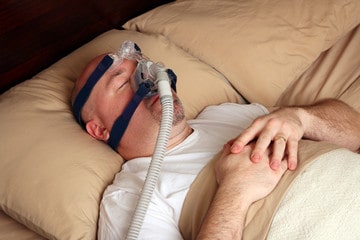
For diagnosis, the doctor may recommend a polysomnography. This examination takes place in a sleep center. This technique is designed to detect HPAI or other severe sleep disorders. It can be supplemented with tests such as actimetry, polygraphy, etc. polygraphy oximetry, arousal maintenance test and others.
As soon as you notice symptoms of sleep apnea, you should make an appointment with your GP for a sleep apnea screening. He or she can refer you to a sleep specialist if your case is beyond his or her competence.
Common medical terms you will encounter
- Apnea: cessation of breathing during sleep lasting 10 seconds or more.
- Apnea-hypopnea index (AHI): number of apneas and hypopneas per hour of sleep measured during the recording of breathing during the night. The index is used to assess the severity of sleep apnea syndrome.
- Ventilatory polygraphy (sleep polygraphy): Recording of respiratory parameters during the night, at home or in hospital. *Home sleep apnea test.
- Electroencephalogram (EEG): recording of the brain's electrical activity as it changes between wakefulness and the various stages of sleep.
- Electromyogram (EMG): recording of the electrical activity of the muscular system as it changes between wakefulness and the various stages of sleep.
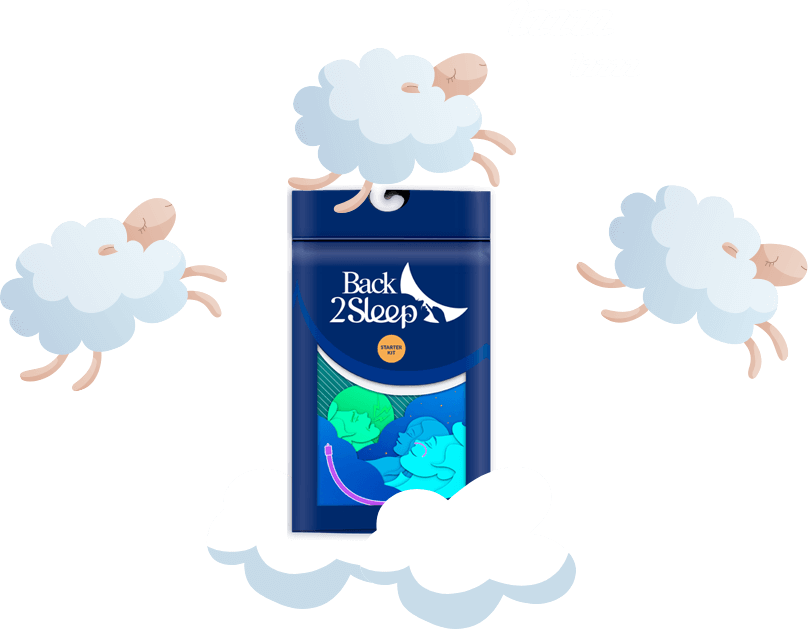
- Choosing a selection results in a full page refresh.
- Opens in a new window.
